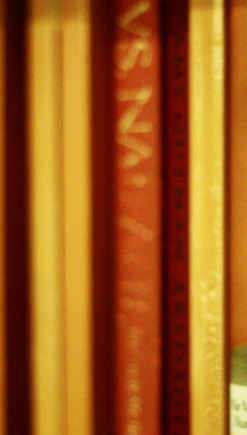
The book had sat on your nightstand for three weeks, a quiet monument to a friendship you thought you understood. It was a recommendation from Clara, your oldest and dearest friend. You’d met for coffee, and you’d been venting, as you often did, about the stagnant pond your life had become. The kids were grown, your career had plateaued into comfortable routine, and you felt… invisible. A supporting character in everyone else’s story.
Clara had listened, her head tilted, her hands wrapped around her mug. “I have just the thing,” she’d said, her eyes bright. “It’s a mystery, but not the kind you’re thinking. It’s quiet. Profound. It’s called The Silent Citadel.” She’d pressed the paperback into your hands. “Pay attention to the librarian. She’s the key.”
You’d started it that night. It was a good book, beautifully written. A slow-burn literary mystery about a reclusive historian trying to authenticate a medieval map. The protagonist was lonely, adrift, his life consumed by a quest for a truth that might not even exist. You saw a little of yourself in his quiet desperation. And Clara was right—the librarian, a minor character who appeared sporadically to help the historian, was wonderfully sharp and perceptive.
But it was on page 147, deep in a scene where the librarian is helping the historian decipher a coded inscription, that your reading—and your world—stalled. The librarian, with a knowing smile, tells the historian, “The truth isn’t always in the grand design, Arthur. Sometimes, it’s in the marginalia. The things we were never meant to notice.”
And there, in the actual margin of your book, in Clara’s familiar, looping cursive, was a note.
It wasn’t about the plot. It was a single, underlined sentence.
“He never sees that the map he’s searching for is leading him directly to her.”
You stared at the words, your heart doing a funny little stutter. You read the page again. The scene was about parchment and Latin phrases. But Clara’s note reframed everything. It wasn’t about the map. It was about the mapmaker. The librarian, in her quiet, steadfast way, was the real treasure. The historian was so fixated on the past, on the dusty, academic puzzle, that he was blind to the vibrant, present, brilliant woman right in front of him, the one providing all the answers.
It was a key, slipped under your door.
You began to read with a new, feverish intensity, no longer a passive reader but a detective. You found more of her notes, tucked away like Easter eggs.
Next to a description of the historian’s cluttered, lonely apartment: “A fortress of his own making.”
Underlined when the librarian quietly corrected a mistake in his translation without a hint of condescension: “True strength.”
And the final, devastating note, at the book’s climax, where the historian finally finds the citadel, only to discover it’s a ruin, an empty shell. He’s achieved his goal and found it hollow. He sits among the stones, utterly lost. And there, in the margin, Clara had written just four words:
“The citadel is empty.”
You closed the book, the breath knocked out of you. The story wasn’t a mystery. It was a mirror.
The reclusive historian, so obsessed with a distant, academic goal that he couldn’t see the life waiting for him… that was you. Your obsession with your career, with your past accomplishments, with the “what-ifs” and the “if-onlys”—it was all a search for a silent, empty citadel. And Clara, your friend of thirty years… she was the librarian. The one who had always been there, providing support, wisdom, and gentle corrections. The one you had taken for granted, filed away in the comfortable category of “friend,” never truly seeing the depth of her, the love that might be waiting there, just beyond the margins of your perception.
The book they recommended you to read contained a hidden message about the person who recommended it.
It was the most elegant, profound, and terrifying love letter you had ever received. She hadn’t given you a solution. She had given you a lens. She had held up a story and said, “This is you. And I am here. Can you see it?”
You picked up your phone, your fingers trembling. You didn’t text. You called.
“Did you finish it?” she asked, her voice a mixture of hope and apprehension.
“I did,” you said, your own voice thick with an emotion you were only just beginning to name. “Clara… I finally saw the librarian.”
The silence on the other end of the line was profound, filled with the weight of a thousand unspoken conversations. Then, a soft, shaky exhale.
“It took you long enough,” she whispered.
And you knew, in that moment, that your own story was no longer about searching for ruined citadels. It was about closing the book on the past and finally, finally reading the page that had been right in front of you all along.